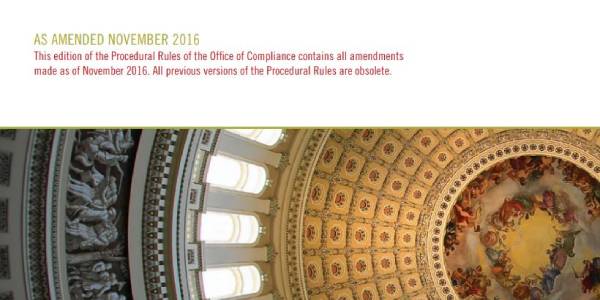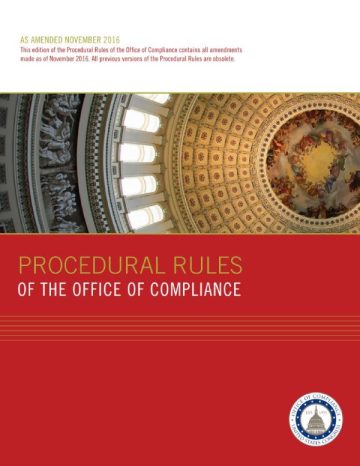INTRODUCTION TO THE CONGRESSIONAL ACCOUNTABILITY ACT AND THE OFFICE OF COMPLIANCE
The Congressional Accountability Act (CAA), enacted in 1995, was one of the first pieces of legislation passed by the 104th Congress. The CAA requires Congress and legislative branch employing offices to follow many of the same employment and workplace safety laws applied to private business and the Federal government. The CAA also established a dispute resolution procedure for the legislative branch that emphasizes counseling and mediation for the early resolution of disputes.
The CAA applies thirteen civil rights, labor, and workplace safety laws to the U.S. Congress and its instrumentalities. These include the Age Discrimination in Employment Act of 1967; the Americans with Disabilities Act of 1990; Title VII of the Civil Rights Act of 1964; the Employee Polygraph Protection Act of 1988; the Fair Labor Standards Act of 1938; the Family and Medical Leave Act of 1993; the Federal Service Labor-Management Relations Statute; the Occupational Safety and Health Act of 1970; the Rehabilitation Act of 1973; veterans’ employment and reemployment rights at Chapter 43 of Title 38 of the U.S. Code; the Worker Adjustment and Retraining Notification Act; and the Genetic Information Nondiscrimination Act.
The CAA protects over 30,000 employees of the legislative branch, including employees of the House of Representatives and the Senate (including both Washington, D.C. and state district office staff); the Office of the Architect of the Capitol; the Capitol Police; the Office of Congressional Accessibility Services; the Congressional Budget Office; the Office of the Attending Physician; the Office of Compliance. Certain provisions of the CAA also apply to the Government Accountability Office and to the Library of Congress. The CAA established the Office of Compliance as an independent office to administer and enforce the Act. The Office operates an alternative dispute resolution system to resolve disputes and complaints arising under the Act; carries out an education and training program for the regulated community on the rights and responsibilities under the Act; and advises Congress on needed changes and amendments to the Act. The General Counsel of the Office of Compliance has independent investigatory and enforcement authority for certain violations of the Act.

